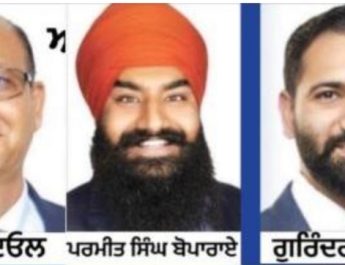From Our Bureau
NEW DELHI: On the directive of the Supreme Court, the Patna High Court on Thursday poured cold water on Bihar Chief Minister Nitish Kumar’s caste census plans, holding that “Prima facie, we are of the opinion that the State has no power to carry out a caste-based survey, in the manner in which it is fashioned now, which would amount to a census.”
A bench of Chief Justice K. Vinod Chandran and Justice Madhuresh Prasad was hearing three pleas filed against the exercise.
The Nitish Kumar government had launched a caste census in Bihar in January this year, and said that detailed information on socio-economic conditions would help create better government policy to aid disadvantaged groups.
One of the petitioners, Youth for Equality, had said in its petition that only the Union government can undertake a ‘census’ door-to-door survey exercise. Last week, the Supreme Court had asked the Patna high court to decide on Youth for Equality’s interim application as soon as possible, preferably within three days of it being placed in front of the chief justice.
“Prima facie, we are of the opinion that the State has no power to carry out a caste-based survey, in the manner in which it is fashioned now, which would amount to a census, thus impinging upon the legislative power of the Union Parliament.
“We also see from the notification issued that the Government intends to share data with the leaders of different parties of the State Assembly, the ruling party and opposition party which is also a matter of great concern.”
The caste census has become a major political concern in recent months, with opposition parties amping up the pressure on the Union government to do the exercise on a national basis. It was the Congress-led UPA government which first conducted a Socio-Economic and Caste Census (SECC) in 2011-12 but never released its data because of varied opinions about it within the government.
the demand for a caste census was more vocally expressed by different opposition parties after the Narendra Modi government implemented reservation for the Economically Weaker Classes (EWS), which effectively gave a quota to the so-called “upper caste” groups. The EWS reservation was seen as an anomaly in the caste-based affirmative action policy because the criteria was poverty, and was perceived by various parties as a move to deny marginalised castes and communities their rights.
The high court will hear the matter again on July 3.
Nitish Kumar has expressed frustration with those criticising the survey, saying it would greatly aid the policy-making process. Undeterred, he plans to make it a top issue in the combination of all opposition parties for one-to-one fight to the BJP in the 2024 general elections.





